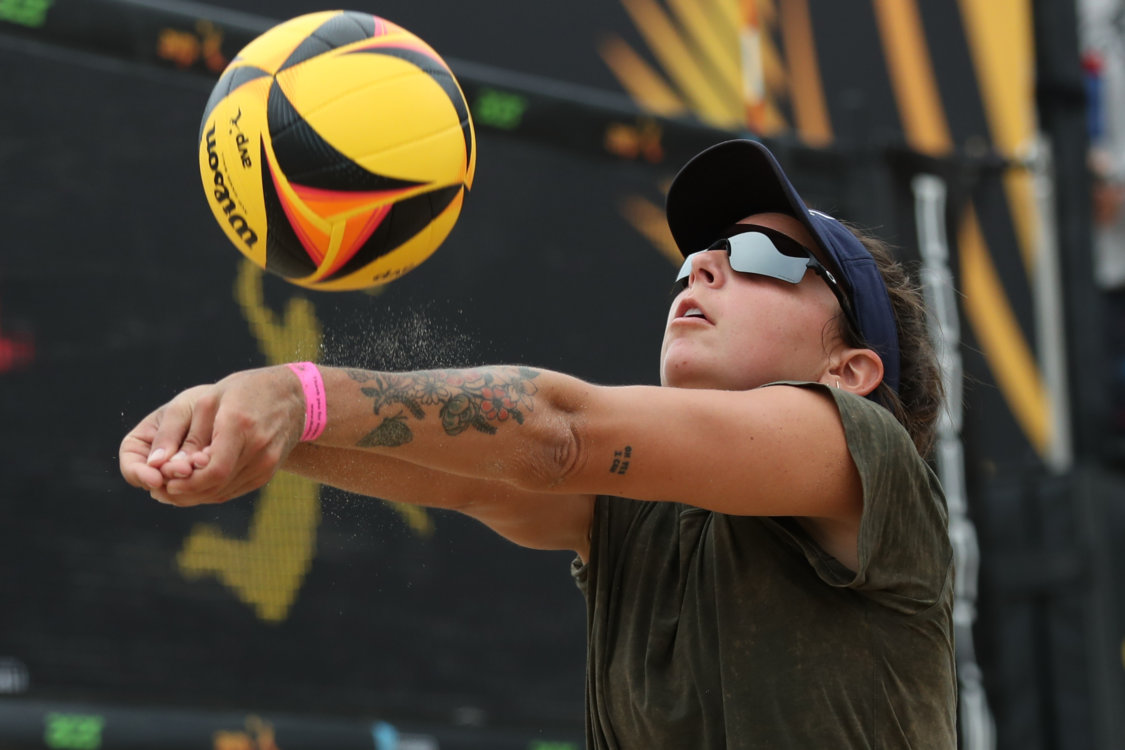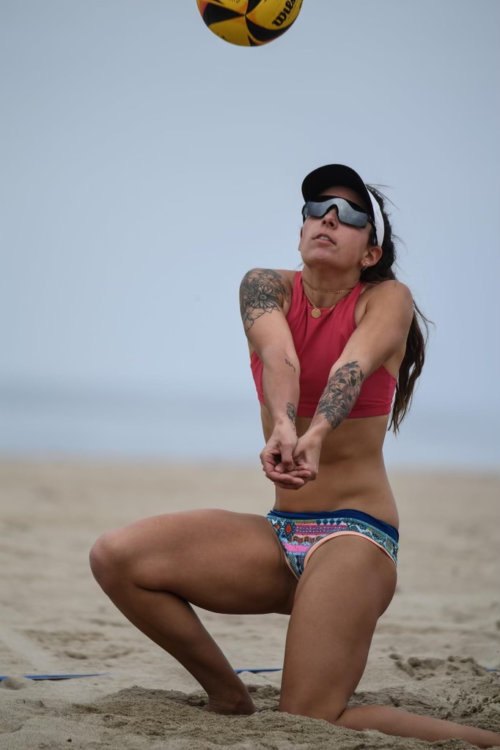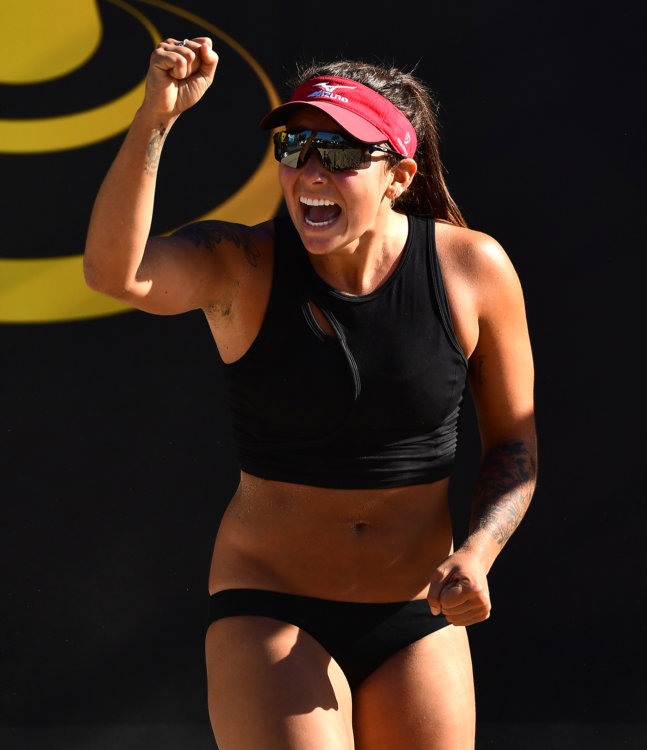Trigger warning: This series of articles will touch on sensitive topics, specifically regarding disordered eating and negative body image. Please proceed with caution and grace for yourself and your peers if you decide to continue reading.
This is a hard story with a happy ending. A fact to be thankful for, because not all journeys involving eating disorders result in peace. And truthfully, most journeys are never-ending; the battle against negative self-image and disordered eating is ongoing. For many, it’s a lifelong awareness and struggle.
Most women and many men would like to change at least one thing about their bodies. Popular culture and social media push an ideal. In our society of comparison, many of us strive to look a certain way. We see value in visible muscles and thinness. Especially in the athletic world. And even more so in a sport in which our uniforms reveal so much of our bodies.
While most of us are thinking about and comparing ourselves to others, some beach volleyball athletes are plagued with a deeper fixation. Kamilla Tan is very vocal about her eating disorder throughout her beach career at UCLA and her brush with death because of it. Victoria Garrick, a USC indoor alum, is doing great work, speaking out and empowering others to do the same.
Today and over a series of articles, AVP’s own Molly Turner is sharing her story in an admirably honest and vulnerable way. I learned a lot from listening to Molly; I trust our AVP family will, too. 
Molly’s body image issues began in high school when she started playing beach volleyball. “I wasn’t really pressured to wear a bathing suit, but half of our uniform was a bathing suit. And although they provided a tank top and leggings, it gets hot. So you would ultimately end up in a bathing suit. I was very uncomfortable with that. I used to play softball where you’re completely covered; you can hide behind all that gear.”
After high school, Molly went to Grand Canyon University to play beach volleyball. Her fiery personality and dedication to the game made her a top player there, but she inwardly struggled to find peace. “In college, there were completely new pressures. And as a collegiate athlete, you’re expected to look a certain way. People don’t tell you, ‘You need to look a certain way,’ but you do. It’s an unspoken thing. You have to look like a decent athlete. So I put that pressure on myself, and I started overworking. I started doing extra cardio to compensate. I used to do extra lifts. I used to go out and practice after practice. I started becoming aware of how many calories are in a couple of almonds – it got really specific. And it wasn’t a mentality of getting better. It was a mentality of losing weight.”
After college, Molly moved to Hermosa Beach to pursue a professional career with the AVP. She found success in her first season, making a couple of Main Draws and establishing a name on Tour. But the pressure Molly felt increased to a suffocating level; the battle against her body was daily. She overtrained and underate to the point of starvation.

“I was always comparing. You look at these top athletes that are just abs and height, and their physique is exactly what you would expect a professional athlete to be. And I look in the mirror, and I’m not that. I’d go to practice and have the best practice, but I’d come home and look in the mirror and be like, ‘You aren’t what you think you are.'”
Through the 2018 season and following offseason, Molly continued the same training and eating patterns she’d established in college. But leading into the 2019 season, her habits took a turn. “In the 2019 season, I was in the deep depths of an eating disorder. I hid it, obviously. Like who wants to know about someone’s eating disorder? But I was starving myself to look a certain way.
“It worked in reverse. I gained a lot of weight because my body was going through a starvation period and holding onto food. And it also worked in the opposite way so that my mental state plummeted.
“I never took off my clothes in games or practices. I wore baggy shirts. I always left on high-waisted pants because I didn’t want anyone to see my stomach. I always remember this Chicago tournament – it’s blazing hot, bordering on 90 degrees. I had pants on, but I was able to take off my shirt. I didn’t want to, but I did. And it was… it was scary. I was trying to focus on the game, but then my mind would wander and wonder what people were thinking when they looked at me. And so my mind wasn’t in the game.
“That season was hard because I didn’t feel like myself. I didn’t lift. I didn’t work out the entire season because I only had energy for practice. And I liked that. I liked the idea that I was struggling and the idea that I could barely get through practice. That meant it was working, the not-eating-enough part.
“I was very aware of what I was doing. I used the knowledge I gained in college and I used that to limit food because I knew how many calories were in each food item. I was trying to plan out my meals to not hit a certain protein number I needed to recover. I tried to lessen my protein intake to almost suffer. I was like, ‘Okay, this is what I need, and I’m going to go under that.’
“It was the hardest year of my life.”
Heading into the 2020 season, Molly was secretly starving herself and perpetually overtraining. But when COVID-19 turned the world upside down, Molly was gifted the time and space to face her eating disorder. And get on the other side of it.
“Quarantine obviously changed everyone’s lives. It changed my life completely.”
I told you this story is a happy one, and it is. Next month, Molly will share more about her road to recovery and where she’s at now. In the meantime, if you’d like to learn more about her or reach out, visit her website and read her blog posts at www.mollyturnerbodyblog.com.
